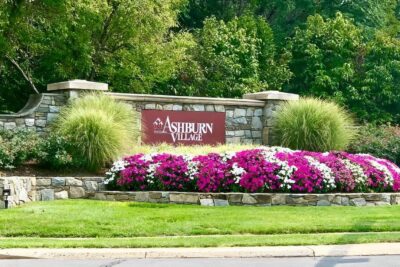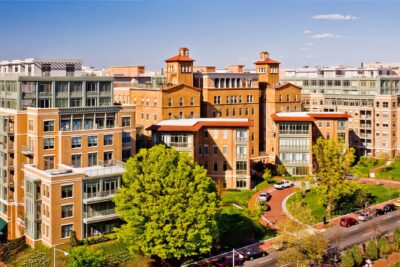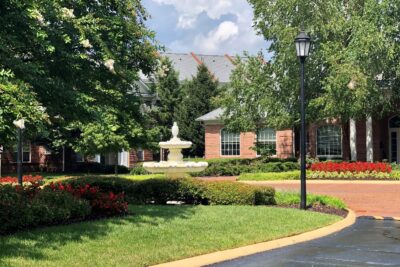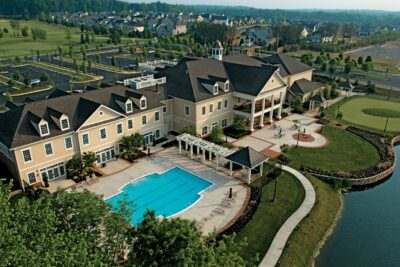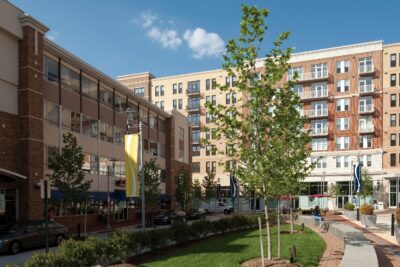Irrigation & Water Conservation Services
In the D.C. metro area’s varying climate, effective water management is crucial for maintaining healthy, vibrant landscapes while protecting our region’s valuable water resources. At Community Landscape Services, we combine technical expertise with advanced irrigation technology to deliver sustainable solutions that keep your landscape beautiful throughout the Mid-Atlantic’s distinct seasons.
Our intelligent irrigation systems serve as the foundation of our water management approach.
We install and maintain sophisticated controllers that automatically adjust watering schedules based on real-time weather data, rainfall patterns, and soil moisture levels. This smart technology can reduce water consumption by up to 30%* while promoting healthier plant growth through precise water delivery. Our comprehensive system optimization includes seasonal audits, prompt leak detection, sprinkler adjustment, and continuous monitoring to maximize efficiency during both humid summers and unpredictable winters.
We specialize in climate-appropriate landscaping that thrives in the Mid-Atlantic region. Our experts guide clients in selecting native plants that flourish in local conditions while requiring minimal supplemental irrigation. Through strategic hydrozoning and advanced soil management techniques, we create resilient landscapes that naturally conserve water while maintaining their aesthetic appeal throughout all four seasons.
Our services deliver multiple benefits beyond water conservation. Clients experience significant reductions in utility costs, ensure compliance with local environmental regulations, and enhance their property values through sustainable practices. We provide 24/7 emergency response services and detailed water usage analytics to help track conservation goals and ROI.
By partnering with Community Landscape Services, property owners contribute to the preservation of the Potomac River watershed while maintaining exceptional landscapes that enhance our region’s natural beauty. Our solutions are specifically designed to address the unique challenges of the D.C. metro area’s climate patterns, from summer humidity to winter freeze-thaw cycles.
* Sources: Environmental Protection Agency (EPA) WaterSense® program research indicates that smart irrigation controllers can reduce outdoor water consumption by 15-50% compared to traditional timer-based systems.
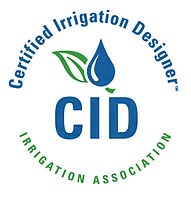
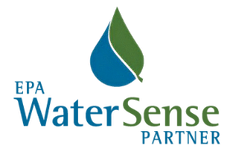

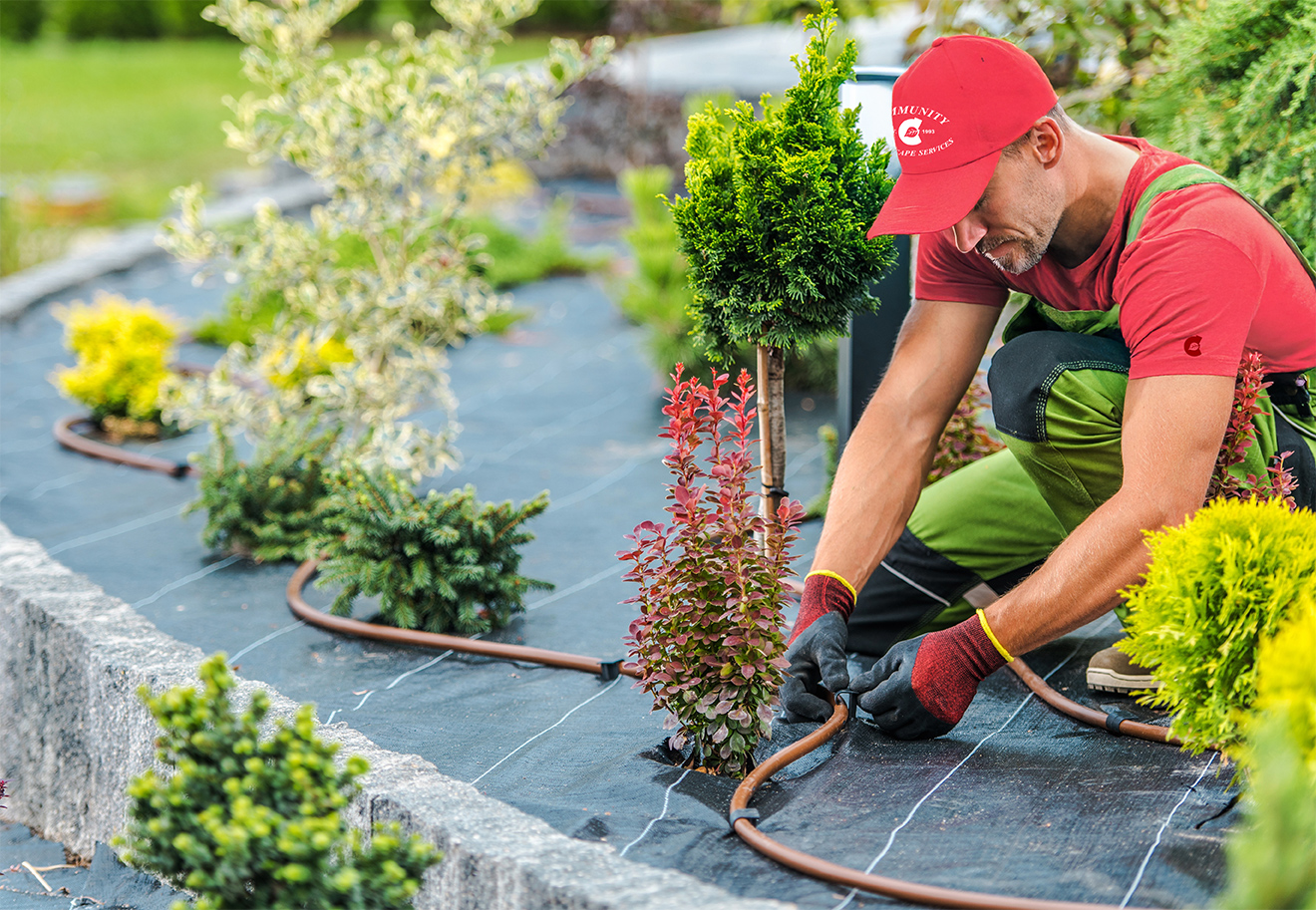

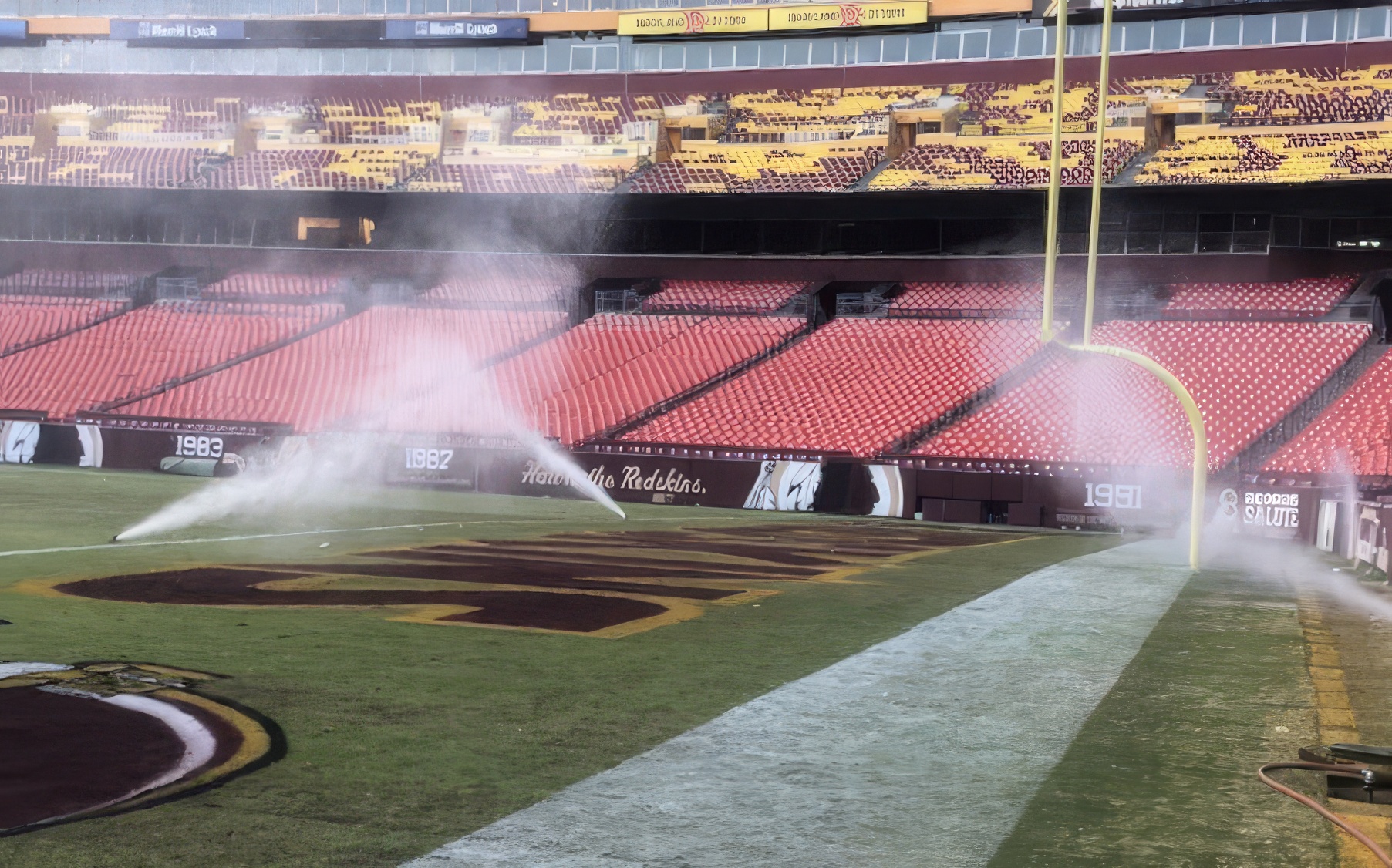
Most Popular Questions
How much can smart irrigation technology reduce my property’s water consumption?
Smart irrigation technology typically reduces outdoor water consumption by 25-40%* compared to traditional irrigation systems in the D.C. metro area. These significant savings are achieved through several integrated technologies and approaches:
For example, a typical office complex in Northern Virginia using traditional irrigation might consume 800,000 gallons annually for landscape watering. After implementing our smart irrigation technology, that same property could save 200,000-320,000 gallons per year while maintaining or improving landscape health.
The cost savings extend beyond water bills. Smart irrigation technology also reduces landscape maintenance needs, prevents water damage to buildings and hardscapes, and extends the life of your irrigation system components. Many of our clients see a return on their smart irrigation investment within 12-24 months through reduced utility costs alone.
Plus, as water rates in the D.C. metro area continue to rise and conservation regulations become stricter, these water-saving technologies become even more valuable for property owners and managers.
* Sources: Environmental Protection Agency (EPA) WaterSense® program research indicates that smart irrigation controllers can reduce outdoor water consumption by 15-50% compared to traditional timer-based systems.
SoCal Urban Water Resources Blog states, “Smart irrigation controllers can significantly reduce water usage by ensuring that irrigation occurs only when necessary. According to the EPA (2016), these technologies can reduce outdoor water use by 20% to 50%.”
OSU Extension – Smart Irrigation Technology: Controllers and Sensors states, “Similar to ET controllers, soil moisture controllers have been shown to reduce irrigation while maintaining turfgrass quality. Compared to homeowner irrigation schedules, soil moisture controllers had an average 72 percent irrigation savings and a 34 percent water savings during drought conditions (Cardenas-Laihacer et al., 2010; Cardenas-Laihacer et al., 2008).”
LoveYourLandscape.org – Shopping for a Smart Irrigation System? states, “The EPA reports that up to 50 percent of the water used for outdoor irrigation in this country may be going to waste. This wasted water takes its toll not just on the environment, but on the pocketbooks of millions of Americans.”
What makes irrigation needs in the D.C. metro area unique?
The D.C. metro area presents distinct irrigation challenges due to its variable Mid-Atlantic climate and unique combination of environmental factors:
Seasonal Weather Patterns
Our region experiences both humid summers and freezing winters, requiring irrigation systems that can adapt to extreme temperature swings. Unlike more temperate regions, we must carefully manage spring and fall transitions while providing complete winter protection through proper system winterization.
Variable Rainfall
Despite averaging 40-44 inches of annual rainfall, our area experiences unpredictable precipitation patterns. Summer can bring both extended dry spells and sudden heavy downpours. This variability requires intelligent irrigation systems that can quickly adapt to real-time weather conditions.
Soil Conditions
The soil types in the D.C. metro area vary significantly, ranging from clay-heavy compositions in parts of Maryland to sandy loams in Northern Virginia. Each soil type requires a different irrigation approach to ensure proper water penetration and retention, while preventing runoff or oversaturation.
Environmental Regulations
Our region’s position within the Chesapeake Bay watershed means irrigation systems must comply with specific environmental regulations designed to protect local waterways. This includes managing stormwater runoff and following water conservation guidelines that vary by jurisdiction across D.C., Maryland, and Virginia.
Urban Heat Island Effect
The metro area’s extensive urban development creates localized heat islands that affect evaporation rates and plant water needs. Properties often have mixed sun exposure due to building shadows, requiring zone-specific irrigation programming to maintain consistent landscape health.
Community Landscape Services designs and maintains irrigation systems engineered explicitly for these regional challenges, ensuring your landscape thrives in our unique Mid-Atlantic environment.
How do you handle irrigation systems during the winter months?
Winter protection is crucial for irrigation systems in the D.C. metro area, where temperatures regularly drop below freezing. Our comprehensive winter management program focuses on three key phases: winterization, winter monitoring, and spring reactivation.
Fall Winterization:
We begin by thoroughly removing all water from your irrigation system using compressed air to prevent freeze damage. This process includes:
Winter Monitoring:
Throughout the dormant season, we:
Spring Reactivation:
As temperatures consistently rise above freezing, we systematically restore your system through:
This comprehensive approach protects your irrigation investment from winter damage while ensuring your system is ready for peak performance when the growing season begins.
Can existing irrigation systems be upgraded with smart technology?
Yes, most existing irrigation systems can be upgraded with smart technology without requiring a complete system replacement. At Community Landscape Services, we assess your current system and recommend strategic upgrades that maximize efficiency while managing costs.
Common Smart Technology Upgrades:
The Upgrade Process:
We begin with a comprehensive system audit to identify:
Based on this assessment, we develop a phased implementation plan to spread costs over time while delivering immediate water savings. Many properties begin with the installation of a smart controller and gradually add sensors and high-efficiency components as budgets allow.
Return on Investment:
Smart technology upgrades typically pay for themselves through:
We help you evaluate potential savings and available rebates to determine which smart technology upgrades will yield the best return on your property investment.
What factors affect the cost of smart irrigation systems?
The cost of a smart irrigation system depends on several key factors that we evaluate during the initial property assessment. Understanding these factors enables us to design a system that delivers optimal value tailored to your specific needs.
Property Characteristics:
Technology Components:
Installation Requirements:
Ongoing Support Services:
We provide detailed cost breakdowns and can develop phased implementation plans to help manage budget considerations while still achieving significant water efficiency improvements. Many clients find utility savings and reduced maintenance costs offset their smart irrigation investment within the first few years of operation.
Are there any rebates or incentives available for water-efficient irrigation systems?
Yes, several water conservation incentives and rebate programs are available in the D.C. metro area. These programs vary by jurisdiction and often change seasonally, but Community Landscape Services helps clients identify and secure available funding opportunities.
Local Water Authority Programs:
Stormwater Management Incentives:
Federal and Regional Programs:
Application Support:
Our team assists with:
Contact us for a current list of available incentives in your specific jurisdiction, as program details and funding levels are regularly updated.
Note: Since rebate programs are subject to frequent changes, property owners should verify the current availability and requirements of their local water authority.
Areas of Expertise
Residential
HOAs, Master Planned Communities, Multi-Family Residential, Military House
Office
Commercial offices, Corporate Campuses, Industrial Facilities, Creative Office Spaces
Medical
Hospitals, Medical Centers, Rehabilitation, MOBs, Acute Care Centers
EDUCATION
Colleges, Universities, K-12 Schools
Recreation
Parks and Civic Spaces, Golf Courses, Museums, Theme Parks Complexes and Fields
Retail
Retail and Lifestyle Centers, Shopping Malls, Mixed Use Developments
Hospitality
Hotels, Destination Resorts, Country Clubs, Theme Parks
Religion
Places of Worship, Cemeteries
Areas of Service
The areas highlighted in red represent the service areas for Community Landscape Services.
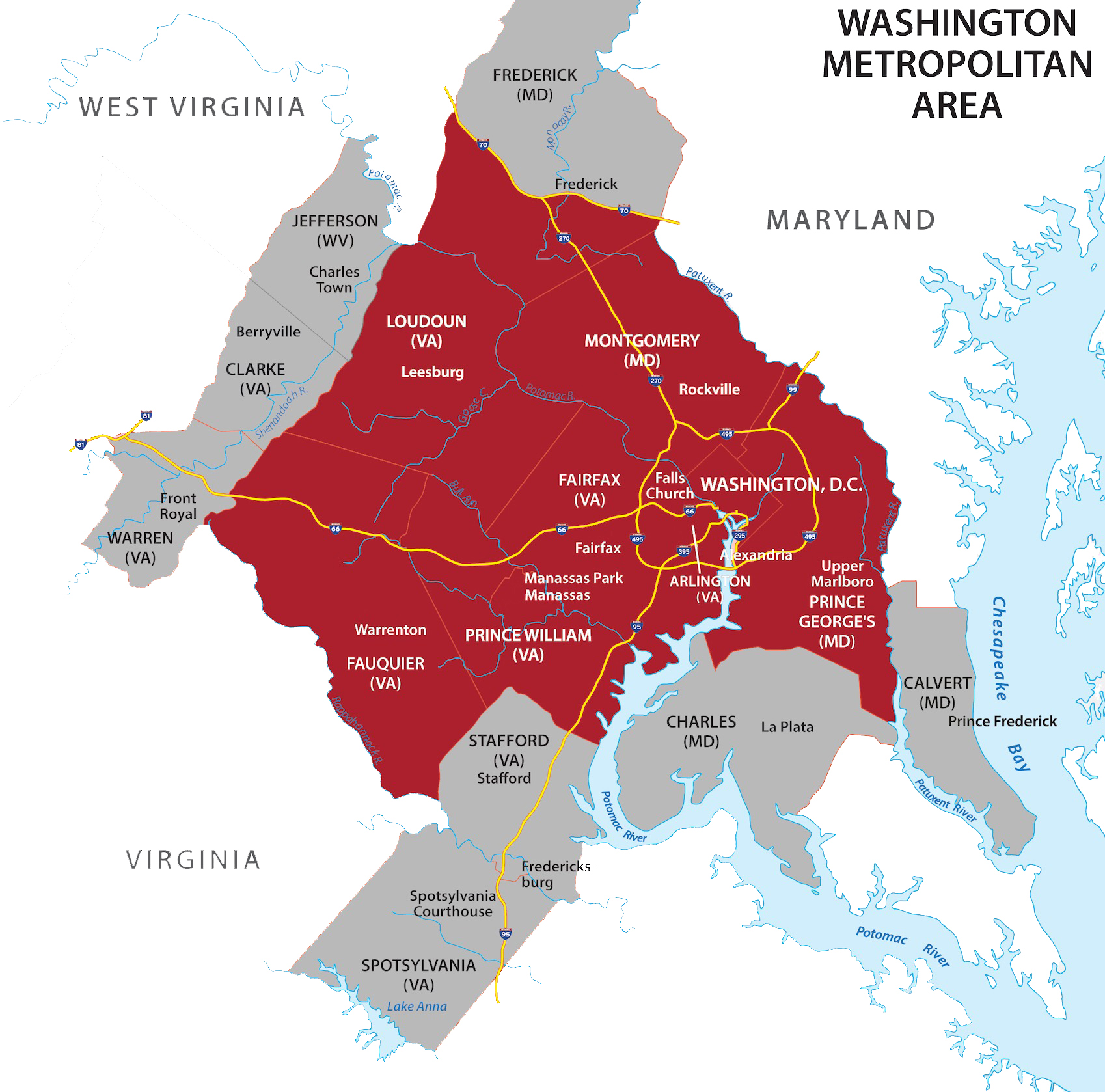
[californiahtml5map id=”0″]
